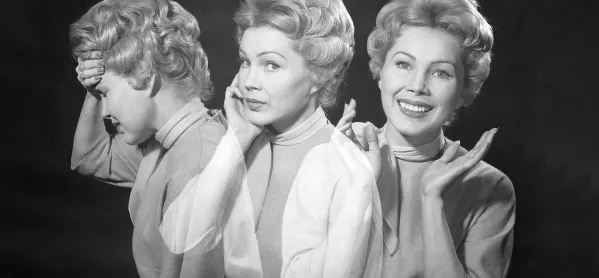How to master the art of conversation

As teachers and leaders, we spend a great deal of time in conversation with colleagues. Every conversation matters, and how we lead these conversations can make a difference to whether a new project is embraced by teams or a difficult conversation is understood, leading to meaningful change.
How we use questions, and give the space for colleagues to contribute, is hugely important. As well as considering what we need to say - or need to ask - in a professional conversation, we need to consider how we can ask effective questions to enable our colleagues to contribute, too.
Every conversation is an opportunity to learn and being brave enough to listen can make a professional conversation work well. We make our meetings - our conversations - more energised and purposeful when we give space for others to share. Too often, we fixate on what we need to say more than what we need to hear.
More: 6 ways to keep your cool during difficult conversations
Tes magazine: 5 tips for awkward conversations
School uniform: Why we must treat children like adults
So, how can we improve our conversations? And what are the good questions we should be asking?
‘What else?’ and ‘any questions’?
The Advice Trap, by Michael Bungay Stanier, is a great place to start. Stainer says it’s rare that the first issue a colleague brings to a conversation or meeting is the real issue.
We might start with “how are you?” and “how can I help today?”. Then, in haste, our colleague might share an issue and skirt around the problem of genuine concern.
“Be lazy,” writes Stanier, to encourage us to listen well and avoid jumping in. Before launching in to address the first thing shared, ask, “what else?“. You may be surprised at what they say next.
“What else?” makes a great opening question and, equally, we need to be mindful of our closing gambit in a meeting or conversation. “Any questions?” seems like a good way to end a meeting but how many times has this resulted in silence from our colleagues rather than a chorus of queries?
In her book, Talk, Elizabeth Stokoe writes about the words “any” and “some”. For example, when GPs asked their patients if they had any questions, most of the time they would say no, but when the GPs changed it to “is there something else?” most of the time the patient would reveal another concern. Our choice of words makes a dramatic difference to the response to the question. Try asking “are there some questions?” or “is there something else?” and you might find there genuinely are more issues to be heard before you call a meeting to a close.
Stay curious
Studies show that advice giving may not be as effective as we might assume, with one study in particular, Advice Giving, a Subtle Pathway to Power, exploring how those keen to give out advice are keen to gain power.
We need to listen carefully in a conversation when a colleague brings up an issue. Before leaping in with advice, consider how we might enable that colleague to resolve the issue themselves. Ask “what are you thinking?” when the conversation moves towards solutions and, to help colleagues evaluate the effectiveness of their ideas, prompt them with “what is the worst that could happen with this solution?” or “what else?”. Having the belief that your colleagues are capable reframes these situations so that instead of your response being “I’m here to save the day”, it becomes “I’m here to listen, be curious and enable colleagues to do their best work”.
How can I help?
We often think that writing “I am here if you need me” or “let me know if I can help” is a good way to close an email after we have given a colleague some advice. However, I think this statement (mostly owing to a full stop being at the end of it) tends to shut down the opportunity for our colleague to ask for help or support.
But when we ask “how can I help?”, it is a very different proposition. Our colleague is invited to respond, and we are being generous and genuine by offering help. Our colleague might decline our offer but, either way, the question has given them another chance to be curious about their needs and be curious about how we can solve a situation or issue together.
Dr Steven Berryman is the director for arts, culture and community at the Odyssey Trust for Education. He tweets @steven_berryman
You need a Tes subscription to read this article
Subscribe now to read this article and get other subscriber-only content:
- Unlimited access to all Tes magazine content
- Exclusive subscriber-only stories
- Award-winning email newsletters
Already a subscriber? Log in
You need a subscription to read this article
Subscribe now to read this article and get other subscriber-only content, including:
- Unlimited access to all Tes magazine content
- Exclusive subscriber-only stories
- Award-winning email newsletters